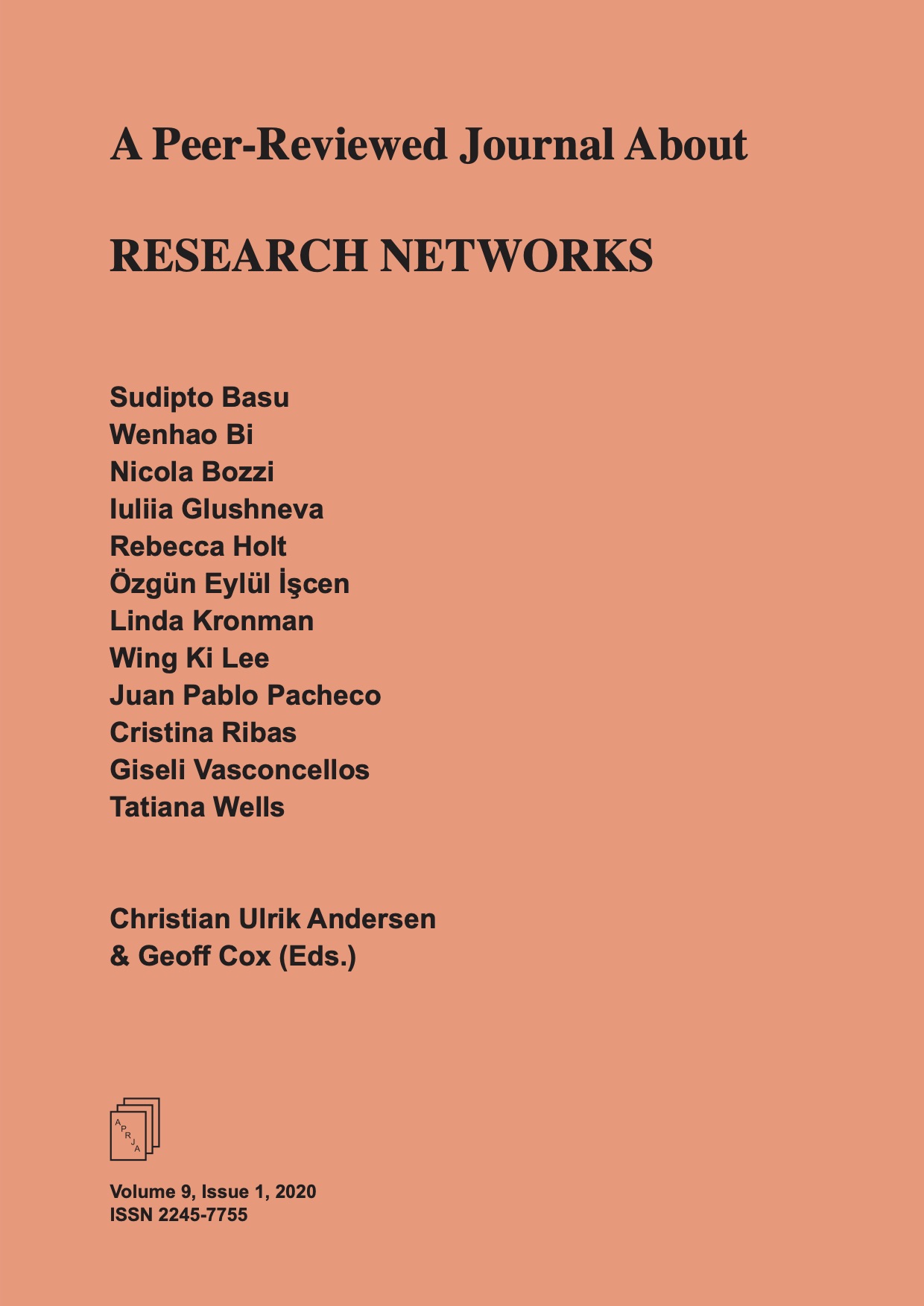Revisiting Cognitive Mapping
Extractive Capitalism and Media Arts in the Middle East
DOI:
https://doi.org/10.7146/aprja.v9i1.121487Keywords:
Cognitive Mapping, Countervisuality, Digital Colonialism, Middle East, 3D technologyAbstract
The increasingly complex, algorithmically mediated operations of global capital have only deepened the gap between the social order as a whole and its lived experience. Yet, Fredric Jameson’s notion of cognitive mapping, attentive to the conflicting tendencies of capitalist operations, is still helpful for addressing the local instantiations of capital’s expanding frontiers of extraction. I am interested in tracing the historicity of those operations as well as the totality they are actively part of in the present from the vantage point of the Middle East, especially along with the entangled trajectories of oil, finance, and militarism. To this end, I examine countervisual practices in the realm of media arts that contest the aesthetic regime through which the state-capital nexus attempts to legitimize its imperial logic and violence. My reconfiguration of cognitive mapping as countervisuality in Nicholas Mirzoeff’s terms demonstrates that there is no privileged position or method of cognitive mapping, which ultimately corresponds to an active negotiation of urban space across the Global North/ South divide.
Downloads
Published
Issue
Section
License
Copyright (c) 2020 A Peer-Reviewed Journal About

This work is licensed under a Creative Commons Attribution-NonCommercial-ShareAlike 4.0 International License.
Copyrights are held by the individual authors of articles.
Unless stated otherwise, all articles are published under the CC license: ‘Attribution-NonCommercial-ShareAlike’.
The journal is free of charge for readers.
APRJA does not charge authors for Article Processing Costs (APC)


